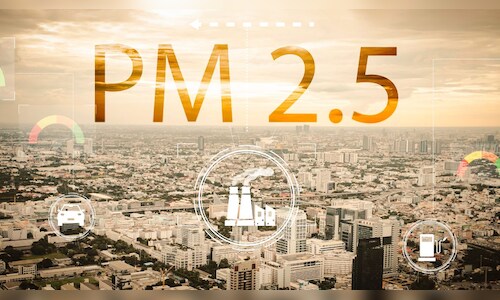
Dr VC Chauhan, an interventional cardiologist at the Bhailal Amin General Hospital, Vadodara, explains the dangers and offers practical advice.
How does exposure to poor air quality, indicated by a high AQI, specifically affect individuals with cardiovascular diseases?
Poor air quality is a recently identified coronary risk factor. Extremely high AQI levels, such as those observed in Delhi, can be as harmful as smoking ten cigarettes daily. Besides respiratory diseases, cardiovascular conditions also worsen with poor air quality.
Factors contributing to air pollution include fuel and biomass burning, adulterated fuels, chemical hazards, and traffic congestion.
| Pollution Level | PM2.5 24-Hr (µg/m³) | Health Impact |
| Poor | 200 µg/m³ | High health risk |
| Very Poor | 300 µg/m³ | Severe health risk |
| Severe | 400 µg/m³ | Critical health risk |
What are the short-term symptoms people with heart conditions might experience when AQI levels are high, and how can they manage these symptoms?
Poor air quality can trigger acute coronary syndrome, leading to symptoms such as chest discomfort, anxiety, shortness of breath, and choking.
Are there long-term risks for people with heart disease who are frequently exposed to poor air quality, such as an increased risk of heart attacks or strokes?
When you breathe in poor-quality air, the air pollutants can travel deep into your bloodstream through your lungs, and to your heart. This can increase your risk of developing heart and circulatory diseases. This can –
- Damage your blood vessels by making them narrower and harder
- Make it more difficult for your blood to flow freely
- Increase blood clotting and blood pressure
- Increase the strain on your heart muscle by forcing it to work harder than it should
- Affect your heart’s electrical system which controls your heartbeat
- Cause abnormal heart rhythms
What precautions or preventive measures should individuals with cardiovascular conditions take during days of high pollution or poor air quality?
While relocating to places with better air quality is good, it is often not practical for a majority of people. However, these are a few measures to consider –
- Advocate for public and government initiatives to address air pollution sources
- People with CVS or risk factors may shift to less polluted places in certain seasons (AQ varies in different seasons).
- If that is not possible, stay indoors and try to spend time in nature when possible
- Use air conditioners at home and in vehicles, though they are not foolproof solutions



